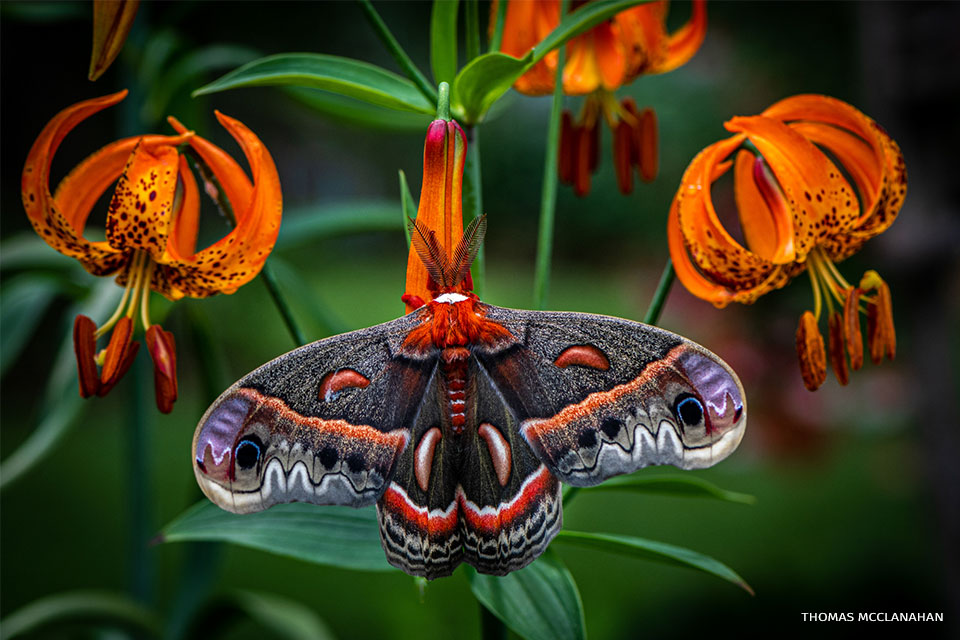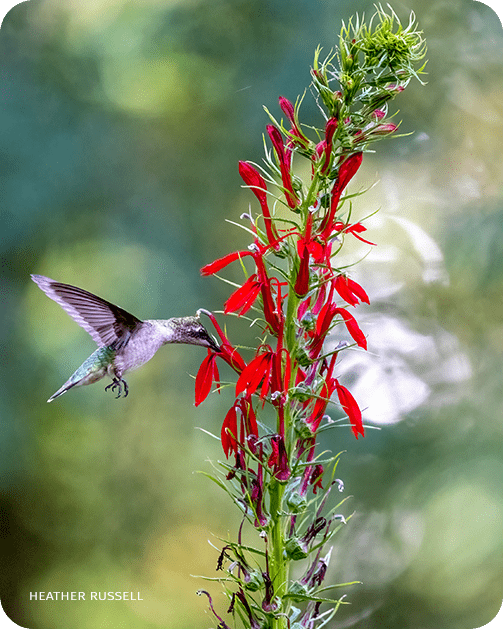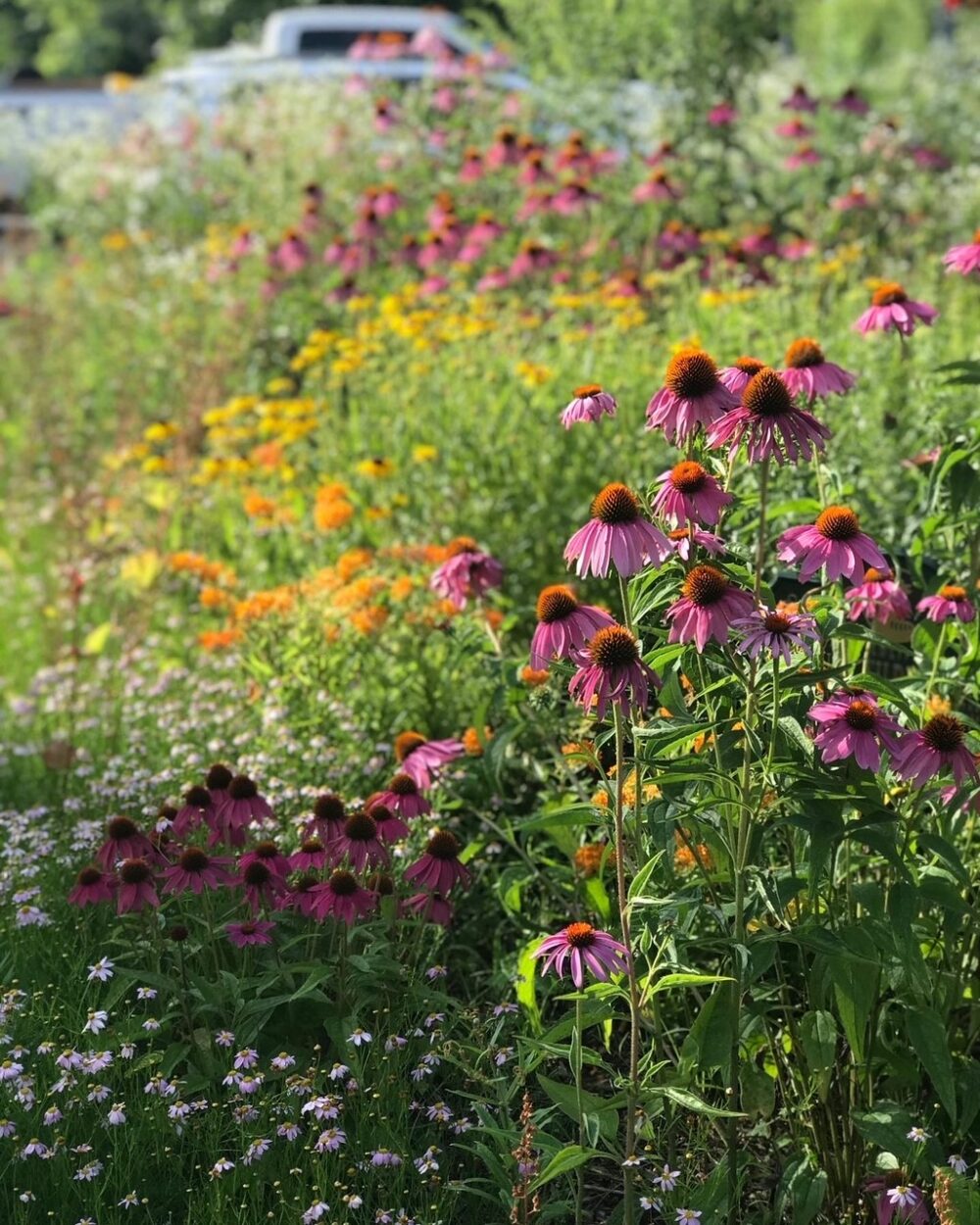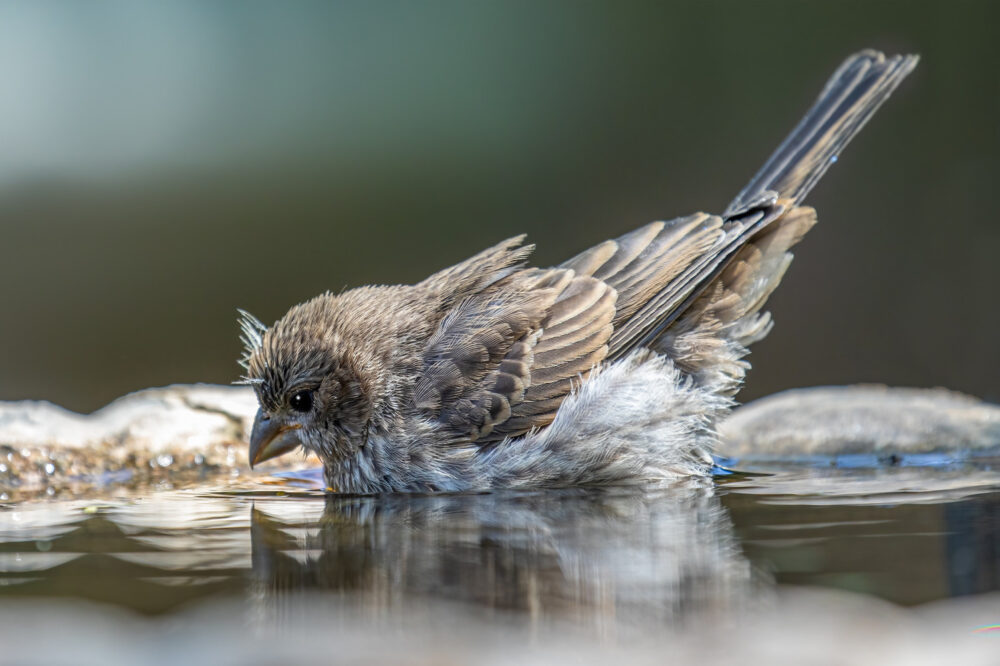We have much more to do and your continued support is needed now more than ever.
6 New Sacred Grounds™ Native Plant Gardens & 5 New Participants in Cleveland
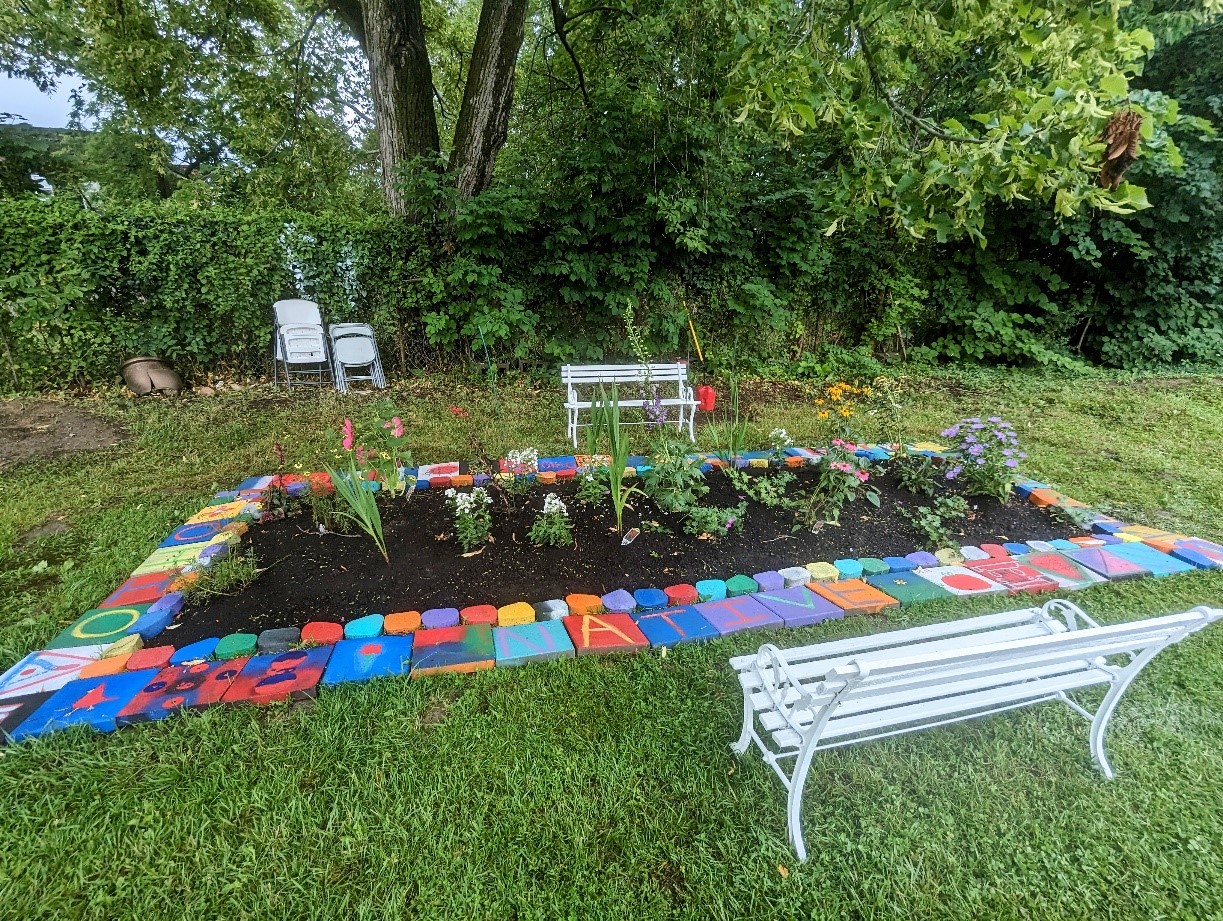
This summer, six native plant gardens at houses of worship in Greater Cleveland are being designated as National Wildlife Federation Sacred Grounds™ sites! This means each faith community dedicated space, time, and resources to creating wildlife habitats that provide food, water, shelter, and a place to rear young for birds and pollinators. It is a momentous time for celebrating year three of this National Wildlife Federation program in Cleveland, while reflecting on the stories of past, current, and brand-new program participants.
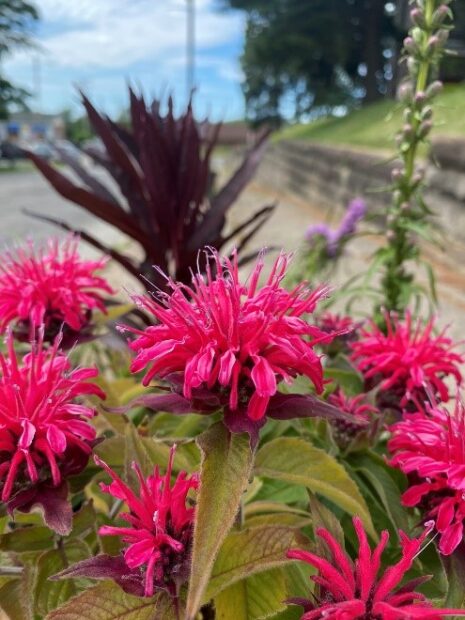
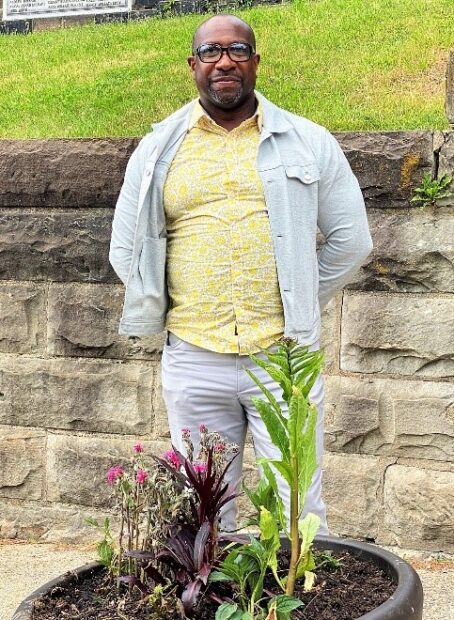
The first site designated in 2023 was at New Life Cathedral in East Cleveland. Their flowering container garden lines the street, adding color and habitat for pollinators. New Life Cathedral also incorporated additional native plants into their pre-existing in-ground garden that lines the church building. Up next, Pastor Shawn Braxton is planning a learning garden to simultaneously teach young people to grow food while also providing fresh fruits and vegetables for neighbors.
This summer, Sacred Grounds™ is also celebrating the efforts of faith communities at The First Cleveland Mosque, Nueva Luz Community Church of the Nazarene, East View United Church of Christ, True Vine Missionary Baptist Church, and First Baptist Church of Greater Cleveland; all of whose gardens are also now designated as “Sacred Grounds™ Sites.”
Planting with Patience – Investing for Long-Term Results
Native plant gardeners have a mantra for describing the growing process: “sleep, creep, leap!” Immediately after relocating to the new garden, perennial plants often need two years to “sleep” while their roots “creep”. Then, in year three, plants “leap” as they grow exponentially, benefiting from their two years of preparatory work. Gardens surrounding Masjid Bilal, a Sacred Grounds™ program alumnus in the Hough neighborhood, are absolutely leaping in year three since planting!
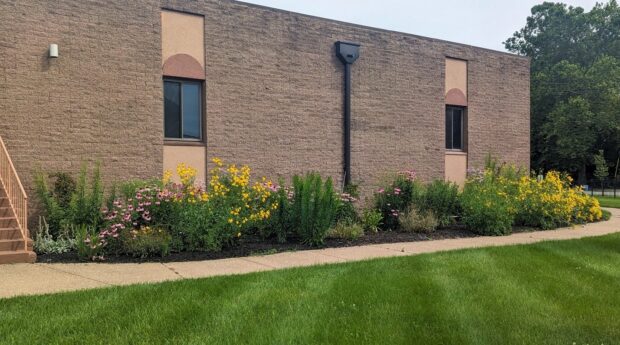
Sacred Grounds™, created by The National Wildlife Federation, works alongside local organizations to leverage the grassroots capacity of faith communities to act as environmental and social agents. Projects include native plant gardens, wildlife habitats, and earth stewardship projects to engage congregations and the larger community. Participants join a growing network of over 100 places of worship engaged in conservation efforts throughout Cleveland, Toledo, Detroit, Grand Rapids, and Northern Michigan.
In Cleveland, Sacred Grounds™ is strengthened by partnerships with The Cuyahoga Soil & Water Conservation District, The Greater Cleveland Interfaith Alliance, and Journey On Yonder. Each partner enriches the program with technical, relational, or community engagement expertise. Together, we install native plant gardens and wildlife habitats that connect people to nature and contribute to healthier, more resilient communities.
Beyond the Garden – Community Engagement Spotlight
Just as Sacred Grounds™ program participants labored to create safe wildlife habitats, many sites took this opportunity to engage and educate their congregations and neighbors about earth stewardship and its benefits for both wildlife and people.
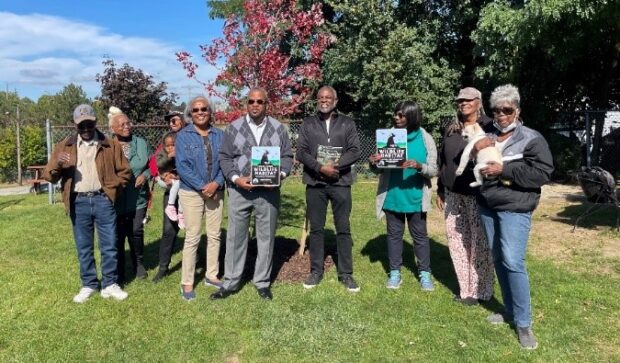
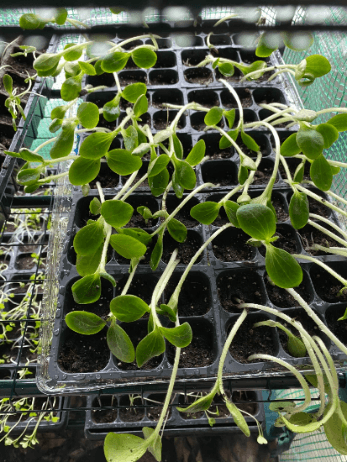
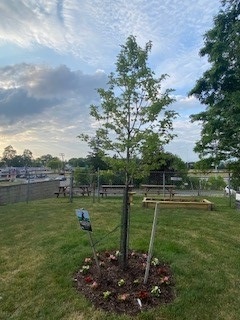
Warrensville Road Community Baptist Church, a Sacred Grounds™ participant, created their Genesis Garden as a beautiful, safe, and restorative space for community members to relax, reflect, and engage with nature. Through their additional Seedlings Project, Warrensville distributed over 150 young plants to congregation members and neighbors. This summer, Warrensville conducted an all-day “HOPE Session” where 58 children, teens, and adults learned about growing and caring for plants and connected those values to faith-based teachings on caring for the earth. Project leader, Deacon Ron Owens describes these ongoing efforts as “bridging a connection between community building and fostering hope.”
Growing the Program – 5 New Participants
As the Sacred Grounds™ Cleveland community celebrated the act of designating four native plant habitats, we also look forward to the five houses of worship who began the program this May: B’nai Jeshurun Congregation, Calvary Reformed Church of Cleveland, Lake Shore Christian Church, St. Patrick Roman Catholic Church, and Unitarian Universalist Congregation of Cleveland.
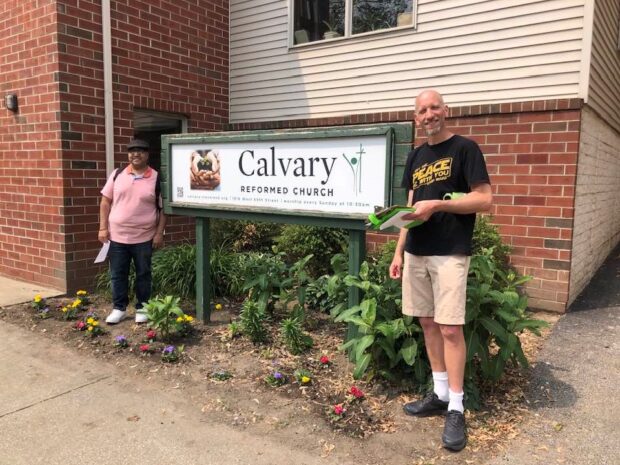
Grounded in the understanding that places of worship are community anchors, the Sacred Grounds™ team views each project as an opportunity to support a network of healthy habitats while also intentionally developing new community partnerships and avenues for all people to connect with local green spaces and each other.
For Calvary Reformed Church, participating in Sacred Grounds™ is one of many ways they are engaging in environmental stewardship. “Churches are the sleeping giants of the environmental movement,” Pastor Dean Van Farowe observes. Each Wednesday in July, the “Creation Care” ministry team put on events for “Creation Care Kids” to learn about conservation and earth stewardship. Together, children and adults planted 250 native plants, crafted birdhouses out of recycled materials, and more.
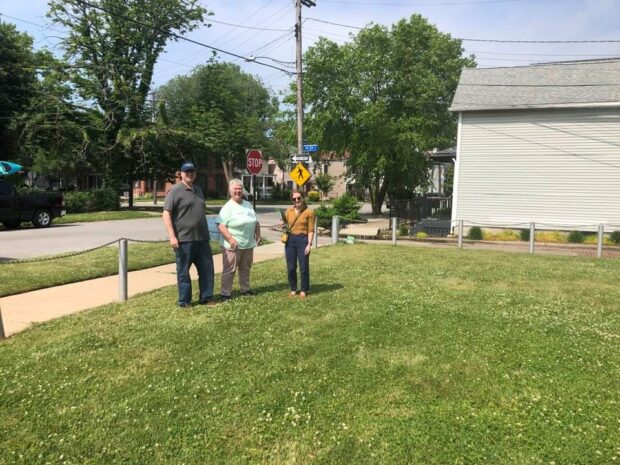
Meanwhile, nestled in the Ohio City neighborhood, the St. Patrick Catholic Church planting team are crafting a haven for people to rest and butterflies to refuel. Multiple local residents already maintain butterfly habitats and St. Patrick’s team is working with them to encourage more neighbors to install their own monarch-friendly gardens. Planting at St. Patrick’s Parish is planned for September, rallying the community’s efforts to establish a flourishing “Monarch Highway” through Ohio City.
Get Involved: Grow Native Plants!
Interested in starting your own native plant garden? The National Wildlife Federation’s plant finder tool is a one-stop-shop for researching which plants are native to your area, helping you narrow down your planting goals, and purchasing plants. Similarly, Audubon’s native plant database provides listings of local native plant nurseries by zip code. It is always best to plant locally grown native plants, when possible.
Meanwhile, learn more about the Sacred Grounds program at nwf.org/sacredgrounds.















